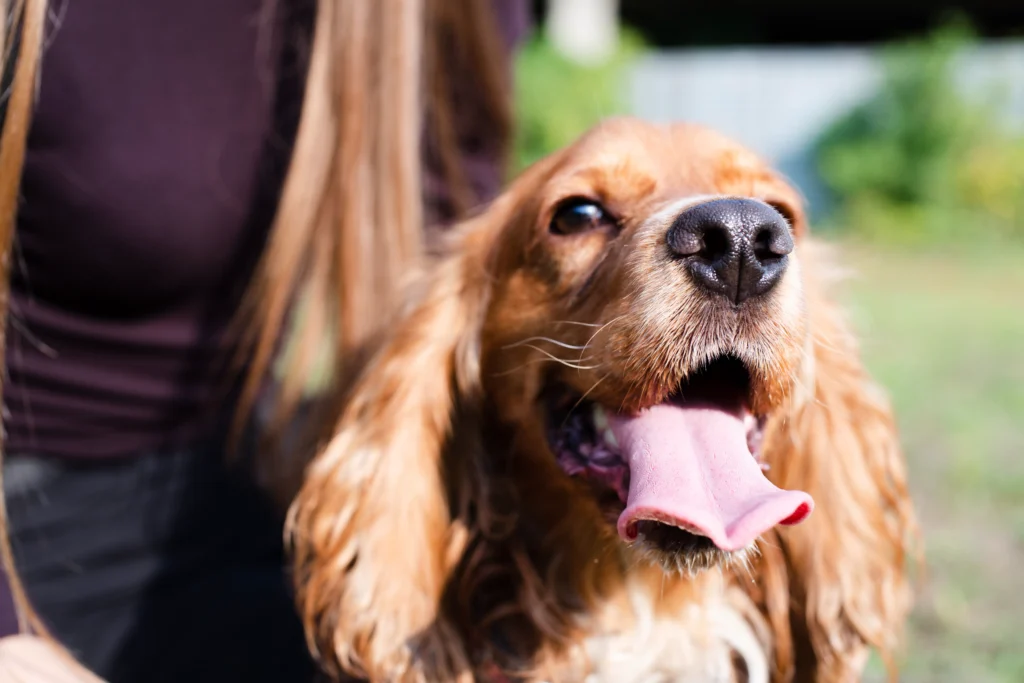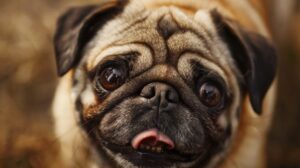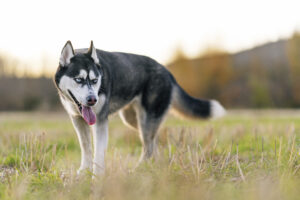Introduction
As a dog owner, you’ve likely noticed your furry friend engaging in all sorts of behaviors—some cute, some puzzling, and some potentially concerning. If your dog keeps licking lips repeatedly, you might initially dismiss it as a quirky habit or simple thirst. However, when your dog keeps licking lips excessively or persistently, it’s time to pay attention.
This seemingly innocuous behavior can actually be your dog’s way of communicating discomfort, anxiety, or even serious medical issues. Understanding why your dog keeps licking lips is crucial for their health and wellbeing. While occasional lip licking is normal dog behavior, persistent or sudden increases in this behavior warrant closer investigation.
In this comprehensive guide, we’ll explore five potentially dangerous causes behind why your dog keeps licking lips, what veterinary experts want you to know about this behavior, and when it’s time to seek professional help. We’ll also cover how to distinguish between normal, occasional lip licking and problematic patterns that might indicate underlying health concerns.
Whether your dog keeps licking lips during specific situations, throughout the day, or has suddenly developed this habit, this article will help you understand what your canine companion might be trying to tell you. By recognizing the difference between harmless lip licking and concerning patterns, you’ll be better equipped to protect your dog’s health and provide them with appropriate care.
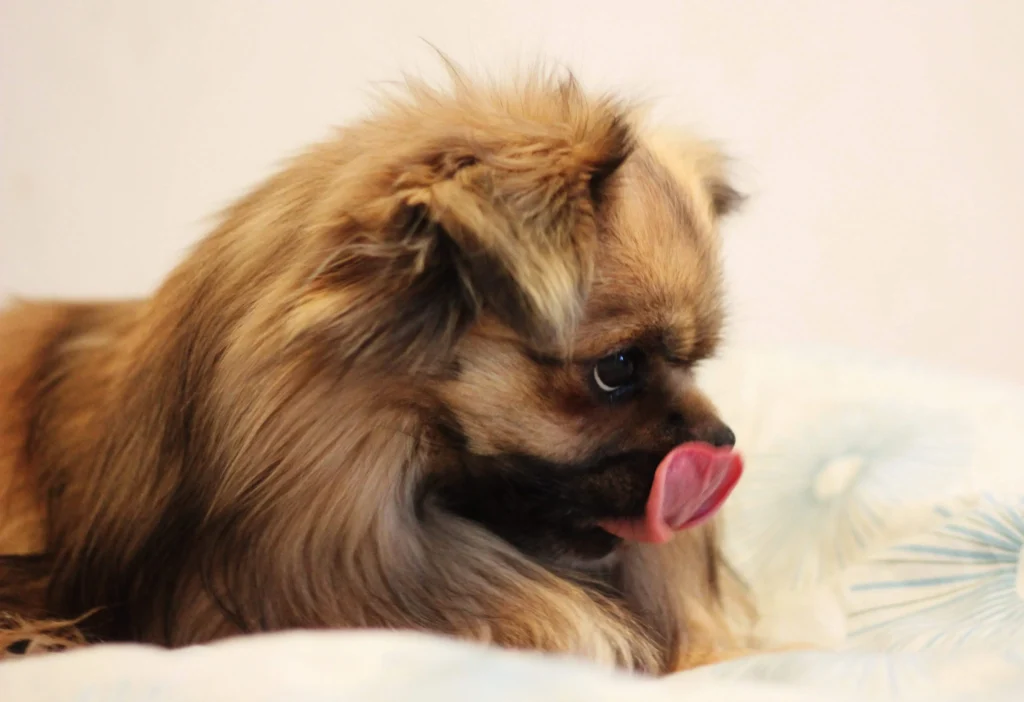
Normal vs. Abnormal Lip Licking in Dogs
Before diving into concerning causes, it’s important to establish what constitutes normal lip licking versus problematic behavior. When your dog keeps licking lips occasionally, it doesn’t always signal a problem.
When Lip Licking Is Normal
Dogs naturally lick their lips in several situations:
- After eating or drinking: Cleaning food residue from around their mouth
- During anticipation of food: Salivation in response to food cues
- Brief licking during normal grooming: Part of their self-cleaning routine
- Occasional stress response: A few licks during mildly stressful situations
Dr. Sarah Wilson, DVM, explains: “Brief, situational lip licking is part of normal canine behavior. For example, if your dog keeps licking lips for a few moments after eating or drinking, that’s typically nothing to worry about.”
When to Be Concerned
Your concern should increase when your dog keeps licking lips in these patterns:
- Frequency: Licking becomes persistent or obsessive
- Context: Licking occurs without obvious triggers like food
- Associated symptoms: Accompanied by other signs like drooling, pawing at the mouth, or lethargy
- Sudden onset: A new behavior that develops abruptly
- Intensity: Frantic or intense licking rather than casual licks
According to a study published in the Journal of Veterinary Behavior, excessive lip licking—defined as frequent, repetitive licking not associated with eating or grooming—can indicate discomfort, stress, or medical issues in dogs.
Now, let’s explore five potentially dangerous reasons why your dog keeps licking lips excessively—causes that veterinarians want pet owners to recognize promptly.
Cause #1: Dental Disease and Oral Pain
One of the most common yet serious reasons your dog keeps licking lips is dental disease or oral pain. According to the American Veterinary Dental Society, approximately 80% of dogs show signs of dental disease by age three, making this a widespread health concern.
How Dental Problems Cause Lip Licking
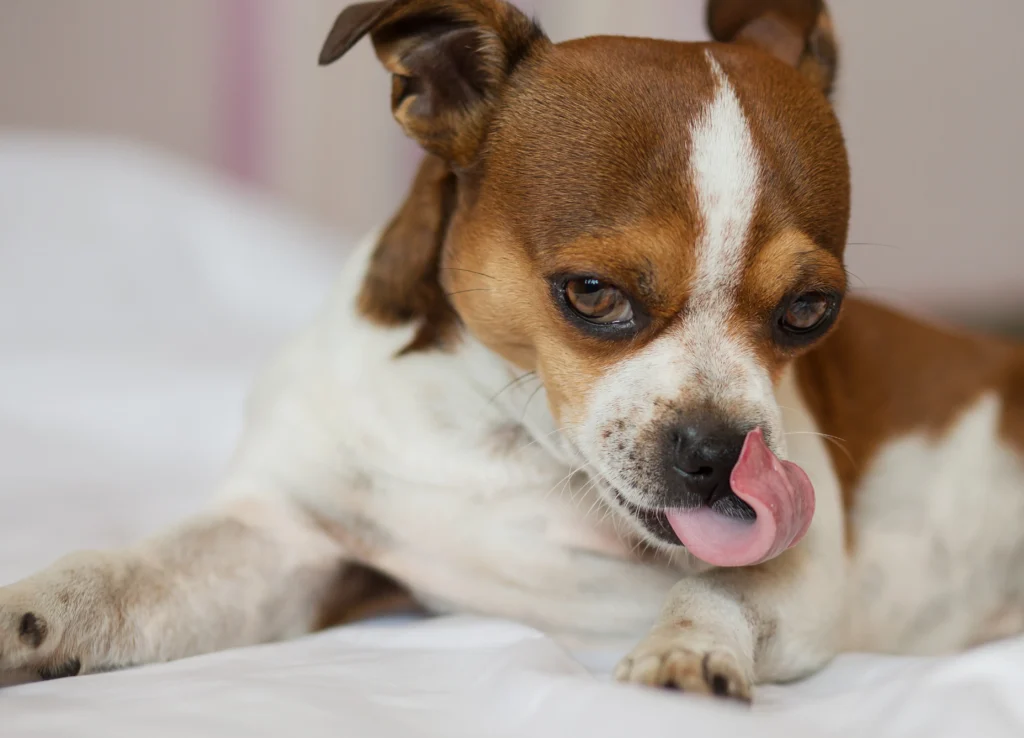
When your dog keeps licking lips repeatedly, they may be responding to discomfort in their mouth. Various dental conditions can trigger this behavior:
- Periodontal disease: Inflammation of gums and supporting tooth structures
- Fractured teeth: Broken teeth exposing sensitive pulp
- Oral tumors: Growths in the mouth causing discomfort
- Foreign objects: Items lodged between teeth or in gums
- Oral ulcers: Painful sores in the mouth
- Tooth root abscesses: Infections at the tooth root
Dr. James Carter, veterinary dental specialist, notes: “When a dog keeps licking lips persistently, it’s often trying to soothe oral pain or remove an irritant from its mouth. This behavior is similar to how humans might run their tongue over a painful tooth or mouth sore.”
Warning Signs to Watch For
If dental problems are why your dog keeps licking lips, you might also notice:
- Bad breath (beyond normal “dog breath”)
- Drooling or bloody saliva
- Difficulty eating or dropping food
- Pawing at the mouth
- Swelling around the face
- Discolored, broken, or missing teeth
- Reluctance to have the face or mouth touched
Why It’s Dangerous
Untreated dental disease isn’t just painful—it’s potentially life-threatening. When your dog keeps licking lips due to dental issues, the underlying infection can spread to vital organs, including the heart, liver, and kidneys, potentially causing serious systemic disease.
A study in the Journal of Veterinary Internal Medicine found that dogs with severe periodontal disease had higher rates of heart, kidney, and liver complications than those with healthy mouths—highlighting why persistent lip licking shouldn’t be ignored.
For more information on maintaining your dog’s dental health, check out this comprehensive guide on proper pet dental care from PetsPump.
Cause #2: Gastrointestinal Issues and Nausea
Another serious reason your dog keeps licking lips could be gastrointestinal distress or nausea. Just like humans might experience excess salivation before vomiting, dogs often lick their lips when feeling nauseated.
How GI Issues Cause Lip Licking
When your dog keeps licking lips and swallowing excessively, they may be managing excess saliva produced in response to stomach discomfort. Gastrointestinal conditions that commonly trigger this behavior include:
- Gastritis: Inflammation of the stomach lining
- Pancreatitis: Inflammation of the pancreas
- Intestinal blockages: Objects or materials obstructing the digestive tract
- Acid reflux: Stomach acid flowing back into the esophagus
- Food allergies or sensitivities: Adverse reactions to specific ingredients
- Ingestion of toxins: Consumption of harmful substances
- Parasitic infections: Worms or other parasites affecting the GI tract
Dr. Emily Robertson, veterinary gastroenterology specialist, explains: “When a dog keeps licking lips combined with symptoms like reduced appetite or changes in bowel movements, it’s often signaling digestive discomfort. The excessive salivation associated with nausea triggers the lip-licking behavior.”
Warning Signs to Watch For
If your dog keeps licking lips due to GI issues, look for these accompanying symptoms:
- Vomiting or regurgitation
- Changes in appetite (usually decreased)
- Diarrhea or constipation
- Lethargy or depression
- Abdominal pain or bloating
- Excessive drooling
- Restlessness, especially after eating
- Dog licking lips and swallowing repeatedly
Why It’s Dangerous
Some gastrointestinal conditions can rapidly become life-threatening if not addressed promptly. For instance, if your dog keeps licking lips due to an intestinal blockage, delayed treatment could lead to bowel perforation, peritonitis, and death within hours.
Pancreatitis, another potential cause of lip licking, can range from mild to severe but requires veterinary intervention. According to the American College of Veterinary Internal Medicine, the mortality rate for severe pancreatitis can be as high as 40% without proper treatment.
For more information on recognizing signs of digestive problems in pets, visit PetsPump’s article on recognizing pet digestive issues.
Cause #3: Toxin Exposure and Poisoning
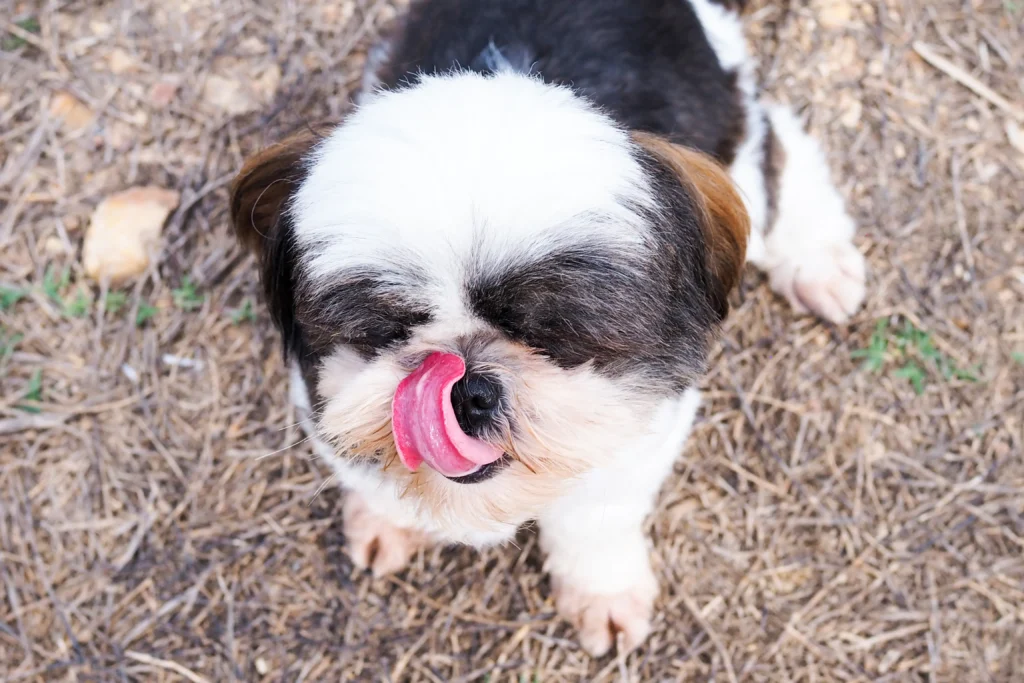
A particularly alarming reason your dog keeps licking lips could be exposure to something toxic. This lip-licking behavior often represents an immediate response to a noxious taste or irritation in the mouth from contact with a poisonous substance.
How Toxin Exposure Causes Lip Licking
When your dog keeps licking lips suddenly and excessively, they may be responding to:
- Household chemicals: Cleaning products, antifreeze, pesticides
- Toxic plants: Many common houseplants and garden plants are toxic to dogs
- Medications: Human medications or inappropriate veterinary drugs
- Contaminated food: Spoiled food or items containing xylitol, chocolate, or other dog toxins
- Toxic toads or insects: Certain species can release toxins when licked or bitten
- Chemical residues: Lawn treatments, pool chemicals, etc.
Dr. Michael Thompson, veterinary toxicologist, notes: “A dog keeps licking lips persistently after toxin exposure as an attempt to remove the irritating substance and in response to increased salivation, which is the body’s natural defense mechanism trying to dilute the toxin.”
Warning Signs to Watch For
If toxin exposure is why your dog keeps licking lips, you might also observe:
- Sudden onset of excessive lip licking
- Drooling or foaming at the mouth
- Pawing at the face
- Redness or burns in or around the mouth
- Vomiting
- Difficulty breathing
- Changes in gum color (very pale, blue, or bright red)
- Disorientation or stumbling
- Seizures in severe cases
- Dog licking lips and looking uncomfortable
Why It’s Dangerous
Toxin exposure can rapidly progress from mouth irritation (when your dog keeps licking lips) to systemic poisoning affecting multiple organ systems. The ASPCA Animal Poison Control Center reports handling over 401,000 cases of pet poisoning annually, with many requiring emergency intervention.
The prognosis depends entirely on the specific toxin, amount of exposure, and how quickly treatment is sought. Some toxins can cause irreversible organ damage or death within hours if not addressed immediately.
If you suspect toxin exposure is why your dog keeps licking lips, contact your veterinarian or the ASPCA Animal Poison Control Center (1-888-426-4435) immediately. For preventative information, see PetsPump’s guide on household items toxic to pets.
Cause #4: Seizure Activity and Neurological Issues
A more serious but less obvious reason your dog keeps licking lips could be neurological dysfunction, including partial seizures. This cause is often overlooked because many pet owners don’t realize seizures can manifest as repetitive behaviors rather than full-body convulsions.
How Neurological Issues Cause Lip Licking
When your dog keeps licking lips in a compulsive, trance-like manner, particularly when accompanied by blank staring or disorientation, they might be experiencing:
- Partial (focal) seizures: Affecting only part of the brain
- Cognitive dysfunction syndrome: “Doggy dementia,” especially in senior dogs
- Brain tumors: Growths affecting brain function
- Encephalitis: Inflammation of the brain tissue
- Vestibular disease: Balance disorders affecting coordination
Dr. Katherine Lewis, veterinary neurologist, explains: “When a dog keeps licking lips rhythmically and seems unresponsive to their environment, it may be experiencing a partial seizure. These can progress to generalized seizures if the underlying condition worsens.”
Warning Signs to Watch For
If neurological issues are why your dog keeps licking lips, look for these accompanying signs:
- Trance-like state during episodes
- Unresponsiveness to name or commands during lip licking
- Vacant staring
- Disorientation before or after episodes
- Head tilting or circling
- Muscle twitching in face or other body parts
- Dog licking lips and shaking
- Dog licking lips at night (seizures often occur during rest)
- Increased episodes over time
Why It’s Dangerous
Neurological causes of excessive lip licking require prompt veterinary attention. If seizure activity is why your dog keeps licking lips, these episodes may increase in frequency and severity over time without proper medical management.
According to research published in the Journal of Veterinary Internal Medicine, approximately 25-30% of dogs with uncontrolled seizures develop status epilepticus—a continuous seizure state that can cause brain damage or death.
Even if the seizures remain partial (where your dog keeps licking lips but doesn’t progress to full convulsions), the underlying cause—whether a tumor, inflammation, or other brain abnormality—requires diagnosis and treatment.
For information on recognizing neurological symptoms in pets, see PetsPump’s article on recognizing signs of neurological problems in pets.
Cause #5: Severe Anxiety and Psychological Distress
While perhaps not immediately life-threatening in a physical sense, psychological causes behind why your dog keeps licking lips shouldn’t be underestimated. Chronic anxiety and stress can significantly impact your dog’s quality of life and may eventually lead to physical health problems.
How Anxiety Causes Lip Licking
When your dog keeps licking lips in response to emotional triggers, they’re displaying what behaviorists call a “calming signal” or stress response. This behavior occurs with:
- Generalized anxiety disorder: Chronic, persistent anxiety
- Specific phobias: Fear of specific triggers like thunderstorms or fireworks
- Separation anxiety: Distress when separated from owners
- Compulsive disorders: OCD-like behaviors in dogs
- Past trauma: Response to situations reminiscent of previous negative experiences
- Social anxiety: Stress in the presence of other dogs or unfamiliar people
Dr. Rebecca Sanders, veterinary behaviorist, notes: “When a dog keeps licking lips combined with other stress signals like yawning and averting their gaze, they’re communicating significant emotional distress. This is the canine equivalent of a human anxiety response.”
Warning Signs to Watch For
If anxiety is why your dog keeps licking lips, you’ll likely notice:
- Situational triggers: Lip licking increases in specific circumstances
- Dog licking lips and yawning together (classic anxiety signals)
- Dog licking lips and panting when not hot or physically exerted
- Avoidance behaviors: Hiding or attempting to escape certain situations
- Body language changes: Tucked tail, lowered head, pinned-back ears
- Trembling or shaking
- Pacing or inability to settle
- Dog licking lips anxiety symptoms worsening over time without intervention
Why It’s Dangerous
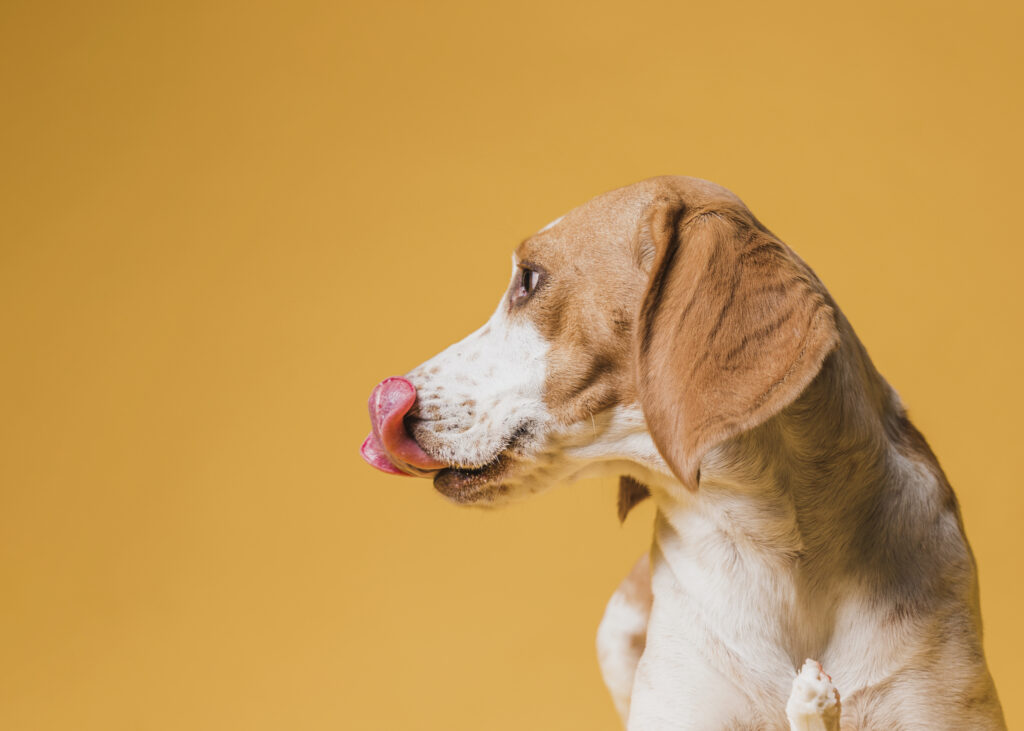
Chronic stress and anxiety that cause your dog keeps licking lips can lead to:
- Compromised immune function: Making dogs more susceptible to illness
- Digestive issues: Stress-induced colitis or gastritis
- Skin problems: Anxiety-related dermatitis or excessive licking leading to hot spots
- Aggressive behavior: Anxiety can escalate to defensive aggression
- Decreased quality of life: Persistent fear and stress are forms of suffering
Research published in Applied Animal Behaviour Science demonstrates that chronic stress in dogs leads to measurable physiological changes, including elevated cortisol levels and altered brain chemistry, similar to the effects of chronic anxiety in humans.
For helpful strategies to reduce canine anxiety, check out PetsPump’s guide on managing dog anxiety naturally.
When to See a Veterinarian About Dog Lip Licking
Given the potentially serious causes behind why your dog keeps licking lips, knowing when to seek professional help is crucial. Here are clear guidelines for when veterinary attention is warranted:
Seek Immediate Emergency Care If:
- Your dog keeps licking lips AND shows signs of difficulty breathing
- You suspect toxin exposure is why your dog keeps licking lips
- Excessive lip licking is accompanied by severe lethargy or collapse
- Your dog has pale gums and seems weak when they keep licking lips
- Dog licking lips and throwing up repeatedly or unproductively
- Seizure-like activity occurs when your dog keeps licking lips
Schedule a Prompt Veterinary Visit (Within 24-48 Hours) If:
- Your dog keeps licking lips persistently for more than a day
- The lip licking is accompanied by decreased appetite or energy
- You notice dog licking lips and drooling excessively
- Your pet seems uncomfortable or in pain when licking
- Dog licking lips when not eating and seems nauseous
- Senior dog keeps licking lips with other behavior changes
- Your dog keeps licking lips and nose obsessively
Consider a Veterinary Behaviorist If:
- Your dog keeps licking lips primarily in specific situations (suggesting anxiety)
- Veterinary exams rule out medical causes but the behavior persists
- Dog licking lips and yawning in response to specific triggers
- The behavior is worsening over time despite no physical abnormalities
Dr. Jennifer Morris, emergency veterinarian, advises: “Never wait to seek care if your dog keeps licking lips along with concerning symptoms like difficulty breathing, collapse, or signs of severe pain. These combinations can indicate life-threatening conditions requiring immediate intervention.”
Diagnostic Process for Excessive Lip Licking
Understanding what to expect when you take your dog to the veterinarian for excessive lip licking can help you prepare properly. When your dog keeps licking lips persistently enough to warrant veterinary attention, the diagnostic process typically includes:
Medical History
Your veterinarian will ask detailed questions about when and how your dog keeps licking lips:
- When did you first notice the behavior?
- Is there a pattern to when your dog licks its lips?
- Has your dog had access to any potential toxins?
- Have you noticed any other symptoms alongside the lip licking?
- Has your dog experienced this before?
Physical Examination
A thorough examination will focus on areas that might explain why your dog keeps licking lips:
- Detailed oral examination (possibly under sedation if needed)
- Abdominal palpation to check for GI discomfort
- Neurological assessment
- Vital signs evaluation
- Assessment for signs of pain or distress
Diagnostic Testing
Depending on findings, your veterinarian may recommend tests to determine why your dog keeps licking lips:
- Blood work (complete blood count and chemistry panel)
- Urinalysis
- Imaging (X-rays or ultrasound) if GI issues are suspected
- Specialized tests like bile acid testing for liver function
- Neurological assessments or referral for advanced imaging (CT or MRI) if seizures are suspected
- Dental X-rays if oral disease is the suspected reason your dog keeps licking lips
Behavioral Assessment
If medical causes are ruled out but your dog keeps licking lips, your veterinarian might:
- Evaluate for anxiety or compulsive behaviors
- Recommend keeping a log of when the behavior occurs
- Suggest videotaping episodes
- Refer to a veterinary behaviorist for specialized assessment
For more information on what to expect during veterinary visits, check out PetsPump’s guide on making the most of your vet visits.
Treatment Options for Dogs That Keep Licking Their Lips
Treatment for a dog keeps licking lips will depend entirely on the underlying cause. Here’s an overview of potential treatments based on diagnosis:
For Dental and Oral Issues
When dental problems cause your dog keeps licking lips, treatment may include:
- Professional dental cleaning under anesthesia
- Extraction of diseased or damaged teeth
- Antibiotics for infections
- Pain management
- Removal of foreign objects
- Surgery for oral tumors
- Regular home dental care moving forward
For Gastrointestinal Causes
If GI issues are why your dog keeps licking lips, your veterinarian might recommend:
- Anti-nausea medications
- Acid reducers for reflux
- Modified diet (hypoallergenic, easily digestible)
- Probiotics for digestive health
- Fluid therapy for dehydration
- Surgery if foreign bodies or blockages are present
- Pancreatic enzyme supplements for pancreatic insufficiency
- Treatment for parasites if present
For Toxin Exposure
When your dog keeps licking lips due to toxin exposure, treatment is often urgent:
- Decontamination procedures (induced vomiting if appropriate)
- Activated charcoal to absorb toxins
- IV fluids to support kidney function and hydration
- Specific antidotes for certain toxins
- Supportive care for affected organ systems
- Monitoring for delayed effects
For Neurological Issues
If seizures or neurological problems cause your dog keeps licking lips, treatment might include:
- Anti-seizure medications
- Anti-inflammatory drugs for brain inflammation
- Management plans for cognitive dysfunction
- Surgical options for certain brain tumors
- Regular neurological monitoring
- Medication adjustments based on response
For Anxiety and Behavioral Causes
When stress is why your dog keeps licking lips, treatment approaches include:
- Behavior modification techniques
- Environmental modifications to reduce stressors
- Anti-anxiety medications when appropriate
- Natural calming supplements
- Pressure wraps or calming aids
- Consistent routines and safe spaces
- Professional behavioral therapy
For comprehensive information on canine health management, PetsPump offers an excellent resource on holistic pet health approaches.
Prevention: Reducing the Risk of Problematic Lip Licking
While you can’t prevent all causes of why a dog keeps licking lips, you can take steps to reduce the risk of many underlying problems:
Dental Health Maintenance
To prevent dental issues that might cause your dog keeps licking lips:
- Establish a regular tooth-brushing routine (ideally daily)
- Provide dental chews approved by the Veterinary Oral Health Council
- Schedule professional dental cleanings as recommended by your veterinarian
- Inspect your dog’s mouth regularly for abnormalities
- Choose appropriate chew toys that won’t damage teeth
Digestive Health Support
To minimize GI issues that could lead to your dog keeps licking lips:
- Feed a high-quality, appropriate diet
- Avoid sudden food changes (transition gradually)
- Prevent access to garbage and inappropriate foods
- Maintain consistent feeding schedules
- Address food sensitivities with your veterinarian
- Provide fresh water at all times
Toxin Prevention
To protect your dog from toxins that might cause them to keep licking lips:
- Store all chemicals, medications, and cleaning products securely
- Research plants before bringing them into your home or garden
- Use pet-safe lawn and garden products
- Keep trash secure and inaccessible
- Be aware of seasonal hazards (certain toads, mushrooms, etc.)
- Know which human foods are toxic to dogs
Stress Reduction
To minimize anxiety that could lead to your dog keeps licking lips:
- Provide regular exercise and mental stimulation
- Create predictable routines
- Socialize your dog appropriately from an early age
- Use positive training methods
- Identify and minimize exposure to stressors when possible
- Create safe spaces in your home where your dog can retreat
For more comprehensive preventative care information, visit PetsPump’s guide on preventative pet healthcare.
When Is Lip Licking in Dogs Normal?
To avoid unnecessary worry, it’s important to recognize when lip licking is actually normal behavior. While this article focuses on concerning causes of why your dog keeps licking lips, here are situations where lip licking is typically normal:
Normal Contexts for Lip Licking
- After eating or drinking: Cleaning the mouth area
- During training sessions: Often a sign of focus or anticipation
- Brief stress responses: A few licks during minor stressors like meeting new people
- During grooming: As part of normal self-cleaning
- Anticipation of food: When you’re preparing their meal
- Communication: Brief lip licking as part of normal canine communication
- Is lip licking in dogs normal after swimming or playing in water? Yes, this is typically normal behavior
Dr. Thomas Miller, canine behaviorist, explains: “Occasional lip licking in appropriate contexts is perfectly normal dog behavior. It becomes concerning when a dog keeps licking lips persistently, obsessively, or in contexts that don’t make sense for normal licking.”
The Difference Between Normal and Abnormal
The key differences between normal lip licking and when your dog keeps licking lips due to a problem are:
- Duration: Brief vs. persistent
- Frequency: Occasional vs. constant
- Context: Appropriate situations vs. random occurrences
- Associated behaviors: Normal body language vs. signs of distress
For helpful information on understanding normal dog behaviors, check out PetsPump’s guide on normal vs. abnormal pet behaviors.
Conclusion: Taking Action When Your Dog Keeps Licking Lips
When your dog keeps licking lips excessively or persistently, it’s important to recognize this behavior as a potential warning sign. While not every instance of lip licking indicates a serious problem, understanding the possible underlying causes empowers you to take appropriate action when necessary.
The five dangerous causes we’ve explored—dental disease, gastrointestinal issues, toxin exposure, neurological problems, and severe anxiety—all require different approaches but share one common factor: the importance of timely intervention. When your dog keeps licking lips along with other concerning symptoms, prompt veterinary attention can make the difference between successful treatment and serious complications.
Remember that as a pet owner, you know your dog’s normal behavior better than anyone. If your intuition tells you something is wrong when your dog keeps licking lips, trust that instinct and consult with your veterinarian. Even if the cause turns out to be minor, the peace of mind is worth it.
By staying observant, responding appropriately to concerning symptoms, and maintaining preventative care practices, you can help ensure your canine companion enjoys the longest, healthiest, and happiest life possible—with just the normal amount of lip licking!
For more information on pet health and behavior, visit PetsPump for comprehensive guides on all aspects of pet care.
Resources for Further Information
- American Veterinary Medical Association – Trusted source for veterinary information
- American College of Veterinary Behaviorists – Expert information on behavioral issues
- ASPCA Animal Poison Control Center – 24/7 toxin information hotline
- American Veterinary Dental College – Dental health resources for pet owners
- Merck Veterinary Manual – Dog Owner Resources – Comprehensive information on dog health conditions
- American Veterinary Medical Association
- American College of Veterinary Behaviorists – Expert information on behavioral issues
Remember, when in doubt about why your dog keeps licking lips, consult with your veterinarian for proper diagnosis and treatment.


